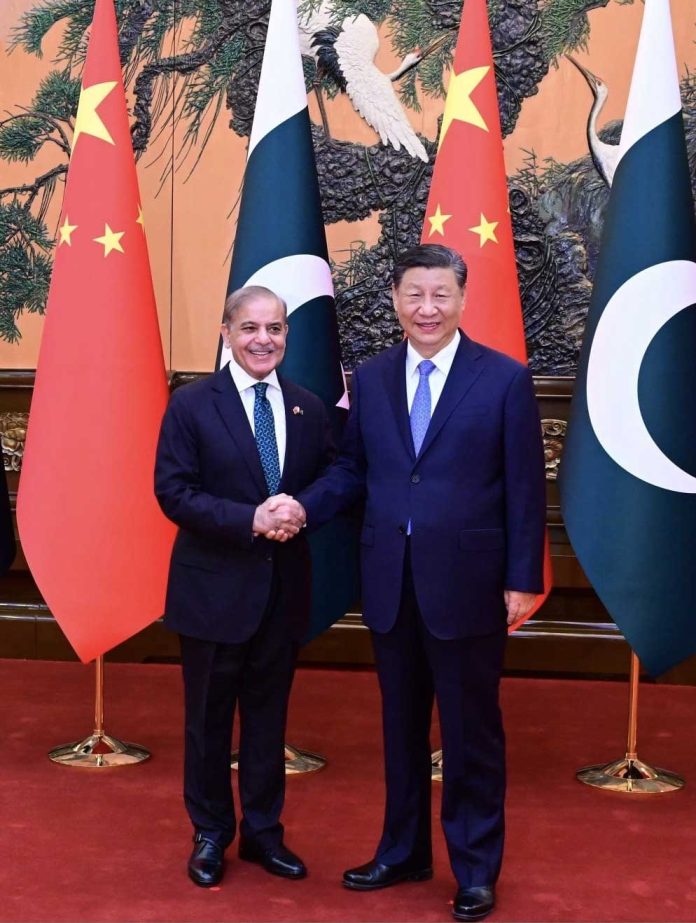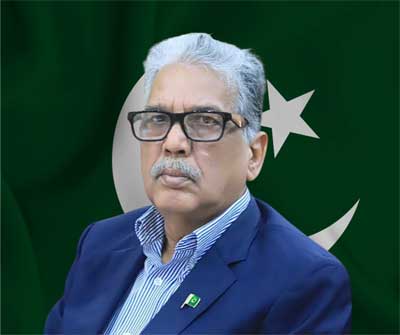


The China-Pakistan Economic Corridor (CPEC), a flagship initiative under China’s Belt and Road Initiative (BRI), has transformed Pakistan’s economic landscape. Among the key players driving this transformation is China North Industries Corporation (NORINCO), which has been involved in several high-impact projects in Pakistan. These projects not only enhance infrastructure but also contribute significantly to local economic empowerment. By creating jobs, fostering local development, and offering skill development opportunities, NORINCO’s initiatives are reshaping the socio-economic fabric of Pakistan, especially in communities where its projects are based.
Job Creation: Boosting Local Employment
NORINCO’s projects under CPEC have generated significant employment opportunities across various sectors in Pakistan. From infrastructure projects such as roads, railways, and energy plants to technological ventures, NORINCO’s involvement has led to the creation of thousands of jobs, directly and indirectly.
One of the most prominent examples is the Lahore Orange Line Metro Train project, Pakistan’s first metro train system, which involved the employment of thousands of local workers in its construction phase. This project, which NORINCO played a major role in executing, required expertise across multiple disciplines-ranging from civil engineering to electrical systems management-providing Pakistanis with both blue-collar and white-collar job opportunities.
Another major employment generator has been the Karot Hydropower Project, where NORINCO has collaborated with Pakistani companies and local workers. The project created thousands of jobs during its construction phase and continues to provide long-term employment for the management and maintenance of the plant. Many of these jobs involve specialized skills in hydropower engineering, environmental management, and operational control, contributing to the development of a skilled workforce that can support future energy projects in the country.
By employing local workers in various capacities, NORINCO has provided a steady source of income for thousands of households. This employment generation is not only limited to large cities like Lahore but also extends to rural and underdeveloped regions, where access to formal employment has traditionally been limited.
Prime Minister’s Invitation to NORINCO for Further Investments
In June 2024, Prime Minister Shehbaz Sharif extended an invitation to NORINCO to invest in Pakistan’s communications infrastructure, particularly the Karachi Circular Railway project. During a meeting with NORINCO’s chairman, the prime minister emphasized the government’s commitment to creating an investor-friendly environment, referencing the establishment of the Special Investment Facilitation Council (SIFC) to facilitate ease of doing business.
The NORINCO chairman praised Shehbaz Sharif for the swift completion of projects during his tenure as the chief minister of Punjab, particularly highlighting the “Punjab and Pakistan Speed” in executing development projects such as the Lahore Orange Line Metro Train. The representative from NORINCO further stated that the Lahore Orange Train project is a symbol of the strong Pak-China friendship, with both countries collaborating closely on the project. NORINCO reaffirmed its commitment to initiating new projects to continue contributing to Pakistan’s infrastructure and development.
Skill Development: Empowering the Workforce
One of the significant socio-economic contributions of NORINCO’s projects in Pakistan is the emphasis on skill development. NORINCO has initiated various training programs to upskill the local workforce, ensuring that Pakistani engineers, technicians, and managers can participate actively in these large-scale projects.
For instance, in the Suki Kinari Hydropower Project, NORINCO has trained hundreds of Pakistani engineers and technicians in hydropower plant management and operations. These training programs have equipped local professionals with the knowledge and skills to manage complex engineering tasks, empowering them to take on leadership roles in future energy projects. This capacity-building effort is crucial for Pakistan’s long-term economic sustainability, as it allows the country to rely less on foreign expertise and more on a homegrown, highly skilled workforce.
Similarly, NORINCO’s involvement in the ML-1 railway project, which aims to upgrade Pakistan’s railway infrastructure, has been instrumental in developing skills related to railway technology, civil construction, and project management. By partnering with Pakistani firms, NORINCO is transferring advanced technologies and engineering know-how, ensuring that local companies are not just passive participants but active contributors to the success of these projects.
Local Economic Development: Catalyzing Growth in Communities
In addition to job creation and skill development, NORINCO’s projects have spurred local economic development in the areas where they operate. Infrastructure projects, such as roads and railways, improve connectivity and make it easier for local businesses to transport goods and services. This enhanced connectivity reduces transport costs, increases trade, and fosters economic growth in both urban and rural areas.
One such example is the Peshawar-Karachi Motorway, where NORINCO’s involvement has significantly improved transportation infrastructure along Pakistan’s most vital trade route. The motorway has reduced travel times, making it easier for businesses to access markets and distribute their products more efficiently. This has had a positive ripple effect on local economies, boosting trade, commerce, and agricultural productivity in regions that were previously underserved by transport infrastructure.
Moreover, NORINCO’s energy projects, particularly in hydropower, have improved access to reliable electricity in rural areas, helping communities build small industries and businesses. The Karot Hydropower Project is an example of how energy infrastructure can have a transformative effect on local economies by providing consistent, affordable electricity to areas that previously struggled with energy shortages. As local communities gain access to stable energy sources, they can invest in businesses, create jobs, and stimulate economic growth.
Socio-Economic Impact on Communities
NORINCO’s projects have had a profound socio-economic impact on the communities in which they operate. The job opportunities created by these projects have helped improve living standards, particularly in economically disadvantaged regions. In areas like the Hazara division, where the Suki Kinari Hydropower Project is located, NORINCO’s investment has led to the development of new infrastructure, such as roads, schools, and healthcare facilities, improving the quality of life for local residents.
The introduction of training programs has empowered local communities by providing them with the skills needed to access better job opportunities. This, in turn, has reduced poverty levels and contributed to social mobility in regions where economic stagnation was once prevalent. Moreover, the involvement of local workers in these projects has created a sense of ownership and pride, fostering stronger community ties and improving social cohesion.




